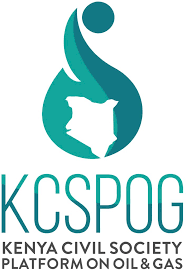Expectations on Next Steps Following the Turkana Oil FDP Submission by Tullow
By Emmaqulate Kemunto
In December 2021, the Kenya Joint Venture (KJV) submitted its Field Development Plan (FDP) for the Turkana Oil to the Cabinet Secretary for approval. The FDP contains detailed information on the Turkana Oil project, including the number of wells, the size of land required for the project, the construction design, the designated petroleum waste disposal facilities, among others. It depicts the design of the project, and essentially the resulting impacts on the environment, climate, and surrounding communities.
If the CS approves the FDP, we expect to see the Plan, together with the Production Sharing Contract (PSC), submitted to Parliament within 30 days for ratification as required under section 31 of the Petroleum Act. The Ratification process is to take a period of 60 days.
Why ratification?
Article 71 of the Constitution of Kenya requires natural resource agreements to be ratified by Parliament. This is in a bid to promote transparency and ensure that such arrangements reflect the best interest of the Kenyan people, and the affected local community, and that appropriate environmental safeguards have been put in place.
The ratification process
This is outlined by the Petroleum Act, and in more detail by the Natural Resources (Classes of Transactions Subject to Ratification) Act. The latter provides criteria for consideration by Parliament, which include:
- The relevant Government policy.
- Recommendations of relevant regulatory agencies. In this case, NEMA’s approval or otherwise of the South Lokichar Field Development ESIA.
- Comments from the affected county government.
- Adequacy of stakeholder consultation.
- Fair balance between the interests of the county and those of the contractor.
- Benefits to the local community.
- Whether all applicable laws have been complied with.
Unlike mineral resources which have a financial threshold of 500 million USD to warrant Parliamentary ratification, crude oil and natural gas do not have such a requirement, meaning that all FDPs and PSCs regarding crude oil and natural gas have to undergo parliamentary ratification, regardless of the estimated project costs or revenue.
Parliament shall then, within 60 days of receipt, ratify of refuse to ratify the PSC and the FDP. If ratification is refused, parliament will send back the documents to the CS for reconsideration, noting the reasons for refusal to approve. During the ratification process, the law requires that Parliament undertakes public participation.
The ratification process commences at the National Assembly, which shall consider the FDP and PSC within 30 days of submission by the CS, and shall forward its resolution to the Senate for consideration. If the decisions of the two houses vary, the matter will be referred to the mediation committee, and must be settled within 30 days. Overall, Parliament has 90 days to decide, failure to which, the documents are deemed ratified, as per section 31 of the Petroleum Act.
The recent resignation of the CS for Petroleum and Mining creates uncertainty on the approval progress of the FDP, since it is yet to be submitted to Parliament. This, coupled with the dynamics of an election year in Kenya, may slow down the approval processes for the Turkana Oil.
Nevertheless, over the next few months, we expect to see these approval processes, especially the parliamentary approvals, progress in a transparent and inclusive manner, and required by both the Constitution and other laws.
